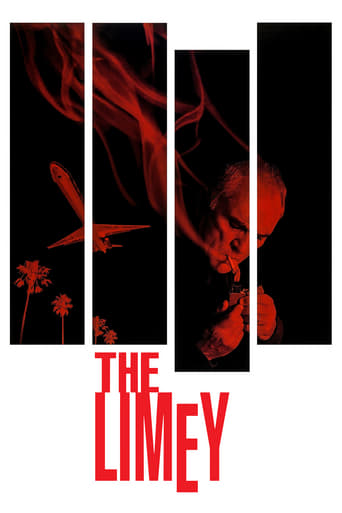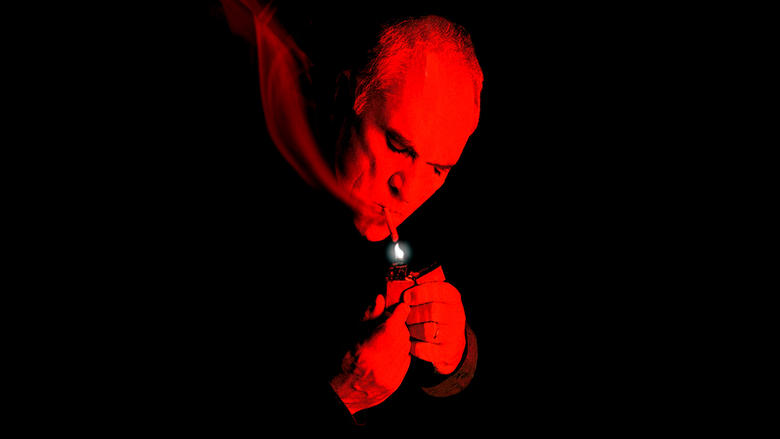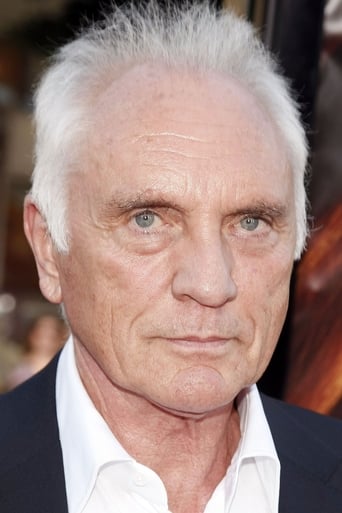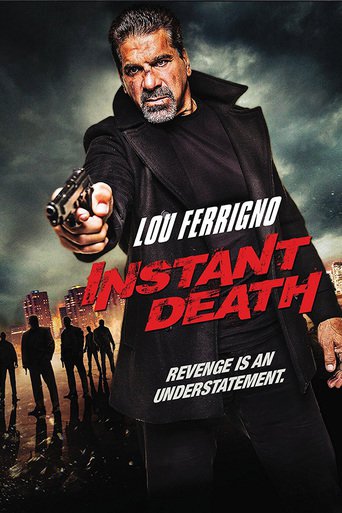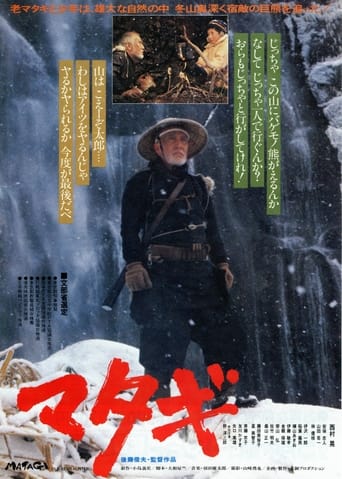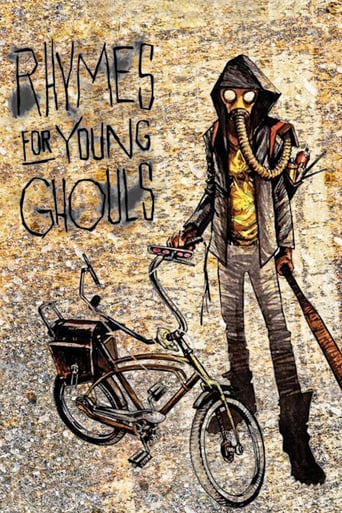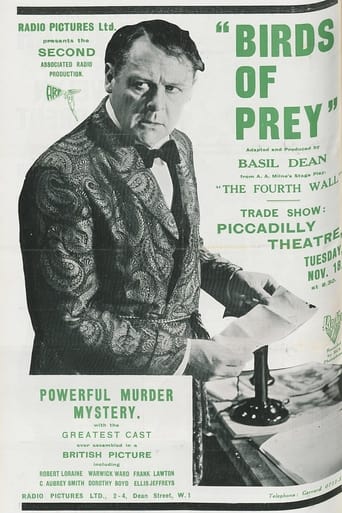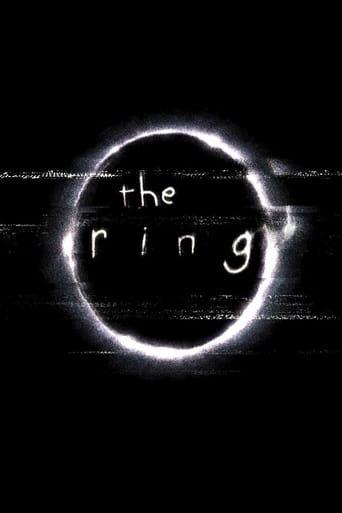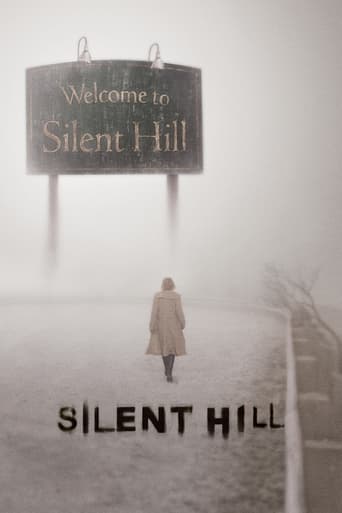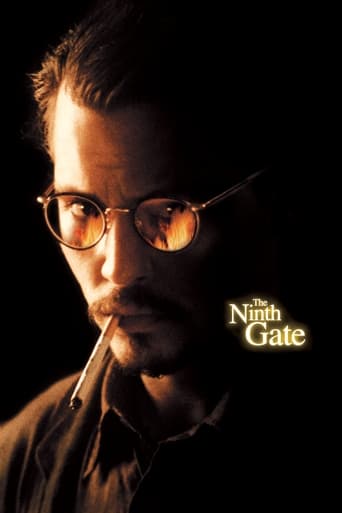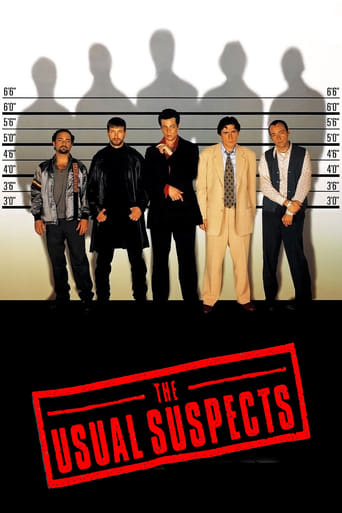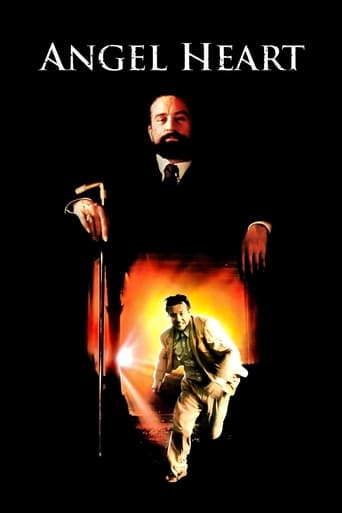The Limey (1999)
The Limey follows Wilson, a tough English ex-con who travels to Los Angeles to avenge his daughter's death. Upon arrival, Wilson goes to task battling Valentine and an army of L.A.'s toughest criminals, hoping to find clues and piece together what happened. After surviving a near-death beating, getting thrown from a building and being chased down a dangerous mountain road, the Englishman decides to dole out some bodily harm of his own.
Watch Trailer
Cast


Similar titles
Reviews
I have never seen Poor Cow, but based on its synopsis it would be fair to wager that this is an update of that film. I suspect that the young Terence Stamp flashbacks in the Limey are from Poor Cow.The Limey is a fair film. It is an enjoyable film. The directors' style is very much of its time, but in the end the film is very conventional. If you're a fan of Terence Stamp, it is worth the watch but it has little else to offer.
This film has annoyed a lot of critics on this site. Don't listen to them. My guess is that you'll enjoy it. I want to contradict them all, but find it difficult to give it more than 7 stars, which is what it gets in spite of all those dopey reviewers. Perhaps I'll give it a generous 8, just to counteract their noxious, numb remarks.Baffling, initially, I agree, but I found it interesting, fascinating in fact, in spite of the experimental narrative style. Admit the ending was a bit of a let-down. I suppose it made me think, though. Terence Stamp finally realized that it was his own reckless and imperfect life that had led to his daughter's death. The film's title is The Limey, so its concentration on Stamp's invigorating portrayal of a caricature, larger than life, cockney jailbird was just fine. A little puzzling that he was able to get away with so many murders, and just flit off back home to Blighty, mission finished if not accomplished. I suppose, this being America, the cops didn't care if the mobsters did each other in. Best thing that could have happened, from their point of view. Like it what happened in True Romance. Couldn't quite follow Stamp's face-off with the big fat cop, uncredited Bill Duke, with the tiny ears. Was he accusing him of receiving some financial benefit of some kind ? Lem Dobbs is a Limey worth checking out. Fonda's dentures impressed me.
This thriller might seem like some to be a simple remake of GET CARTER - but it's a lot more than that. Director Steven Soderbergh shoots his film in an unusual, unique way. Whereas most films follow a simple, chronologically-bound linear narrative (i.e. events happen after each other as time progresses), this film has scenes following a vaguely "diagonal" pattern - what I'm trying to say is that one scene plays out, then we have flashbacks and flash-forwards into the past and future, always going back to the same scene again. While this might sound confusing to watch, you get used to it quickly and realise how brilliant and disconcerting it is. Soderbergh also overlaps his dialogue from scene to scene which make the film even more interesting to watch.While the plot is nothing new, the actors invest it with a real dynamite chemistry, a film to watch spellbound from start to finish. Terence Stamp is absolutely superb as the Cockney gangster, muttering rhyming slang and uttering such class lines as "Tell them I'm coming!", and gives a moving portrayal of a past-it hard man coming to terms with the cruel, modern world. We really get inside this guy's head. On the other hand, Peter Fonda is also good as Stamp's nemesis, a weak music producer hiding behind bodyguards and agents to protect himself. Barry Newman also pops up as Fonda's right-hand man to deliver a tough performance.One classy scene has Stamp beaten to a pulp by thugs - only to return moments later to butcher them all in a bloody shootout. This is shot atypically from what you might expect by reading that description, as to add more impact the camera stays OUTSIDE the building while this happens! Other twists include a bodyguard being thrown over some railings in the background, whereas most flicks would shoot this in close-up. It's touches like these which help breathe new life into the stale thriller and make this instead an intelligent, thought-provoking drama. The only complaint I would have with this film is that it feels a little too short. Watch it and enjoy!
A year after Steven Soderbergh's The Limey was released, Stephen Kay unleashed upon us their remake of 1971 British thriller Get Carter; a film about a low level hoodlum travelling a relatively long distance to look into the death of a family member, before indeed uncovering sordid plots and such they always suspected were there. The fact The Limey is as good as it is would make it doubly unforgivable if one were to opt for the said Get Carter remake if faced between picking it and Soderbergh's film here. Principally, the man has taken a similar idea but brought a great deal of substance where in Kay's effort there was fatuity; a degree of life and ingenuity where there was formula and this sense of verve and energy where there was a just lot of bland 'muscle' going through the motions. Invoke Get Carter at your peril, remake it at your ***. But where The Limey's catalyst is the suspicious death of one of its anti-heroic lead's family on account of a driving accident, it does so well with the material anyway that it gets away with it – telling an engaging tale with a dynamic visual approach.The film is about a titular "limey" (American slang for an Englishman) in the sunny city of Los Angeles, a man omnipresent on account of doing some of his own investigations into a little driving incident wherein his daughter died. Where everything looks harmless and natural enough, our Limey lead Wilson (Stamp) has suspicions that he believes will lead to finding out what really happened. As a character, Wilson is almost certainly of both his era and ilk: that is to say, hardened and from a time and place in 1960's Britain that is light years from where he finds himself now. Rough and often emotionless, although not without a degree of kindness revealed through the way he reminisces and speaks enthusiastically about his past and things such as the music he likes, there is something appealing about watching a tale about this carefree Londoner, who knows what it's like to kill, maim, thieve and serve time, plopped into a contemporary California dominated by the beating sun; houses up in the bluffs and punk African American hit men.Soderbergh doesn't hang around, he drops us headfirst into L.A. and Wilsons's universe. A musical track belts out over the images, a singer singing about "searching low and high"; the lyric "they call him the seeker" as our Wilson stands on screen - immediately inferring a man on a mission to find someone/thing. We're at an airport, and Wilson has just stepped off the plane from Great Britain. Amidst all the activity out front, it is the two seemingly innocuous police officers of the L.A.P.D. that catches Wilson's eye suggesting some sort of history or link to the law. He knocks about town for a while; meets up with a man of Hispanic descent named Eduardo (Guzmán), who'll provide help and answers, then demonstrates his truly unhinged nature when he marches into a blue collar warehouse and starts pushing around those who run it. "Tell him I'm coming!" he shouts, and we get a feel for just how both determined and angry he really is.Cut to he who it is Wilson will eventually come to seek: Peter Fonda's Terry Valentine; a record producer who lives behind his bodyguards inside of a secluded mansion. Soderbergh pulls a trick on us here, in that while Valentine is essentially the villain of the piece, he is not some snarling; foaming-at-the-mouth; evidently evil individual who slots into the role of the antagonist just as easily as Wilson does the hero. Valentine is softly spoken, even frail looking. We get the feeling should Wilson and this man come face to face; it'll be over quite quickly. He talks to a young woman named Adhara (Heinle), his girl friend, about things such as how one should name their children after star consolations because, like, y'know, it's kind of a cool thing to do. Even his name, "Valentine", conjures up the sort of immediate imagery more inclined towards love and fondness and not spite or wickedness, etc. Wilson is, by comparison, much more aggressive and hard bodied; a man not afraid of violence nor probably much into talking about the esoteric qualities of naming kids after star signs.The editing in the film is of particular interest, a film unfolded using stock footage from an old Ken Loach film doubling up as flashbacks of Stamp's character's past; an array of filters and the sort of manipulation of time that sees Wilson recount the same story twice to two different people whilst only ever presenting to us one instance of him telling it. Such an approach calls to mind John Boorman's techniques that he applied to a similarly realist/avant-garde crime picture in 1967's Point Blank; a film told as such so as to replicate its lead's damaged, perhaps even confused, outlook on the world as they recovered from a gunshot wound. Here, having got a sense our lead Wilson (not too far from "Walker", Lee Marvin's Point Blank character) is as damaged (albeit in a psychological sense), the idea of splicing the film up by cutting back and forth from strand to strand; tense to tense is inspired so as to invoke a shattered mentality. In a sense, The Limey is the hard boiled revenge film for people who do not like hard boiled revenge films. It is the antidote to those people who get it into their heads that specific genres or 'types' of films are for set genders or those in a particular age bracket. The Limey is very much, as a standalone film regardless, works really well and should be seen.

